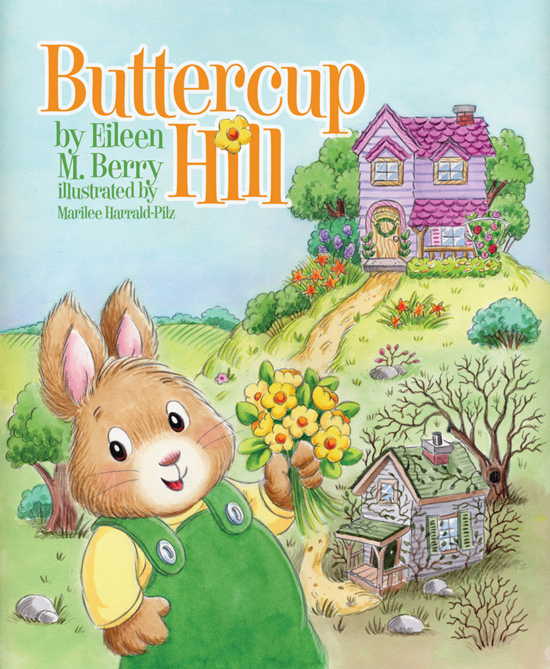
If these past few months of quarantine have taught us anything, it’s to appreciate all the extra time we’ve been able to spend together as families. Many parents have had time to stop and reevaluate what’s really important for their family life. Despite the hardship of isolation from neighbors, coworkers, friends, and church family, we have all learned invaluable lessons. As this unique trial eases or continues, let’s hold on to these lessons and allow God to use them to strengthen our families so we can be growing stronger even in hard times.
family
10 Exciting Summer Activities for Homeschool Families

All right, admit it. Not all summer vacations are created equal.
Perhaps you remember figuring this out as a child when the neighbor kid returned from a mega theme park. After telling lots of cool stories, he asked where you were going on vacation that year. And somehow the idea of a weekend camping trip lost a little of its luster when compared to the excitement of the fast rides and thrills of a theme park.
The hard part for a child to learn is that it doesn’t matter so much where you have an adventure as much as who you have the adventure with! Some of the best childhood memories can spring from times when family members have little but each other. All it takes is a bit of imagination, resourcefulness, and creativity.
If your family—like most—just can’t seem to coordinate time and finances long enough to pull off a flashy vacation, don’t give up! For the family determined to have a good time together and make fun memories, there’s no need to even leave town.
Try these fun ideas for an unforgettable summer:
- Go on a photo scavenger hunt with the whole family. Make a list of cool and wacky items to find around town—a statue of a lion, an ice cream shop, a blue kite, and such—and take fun family pictures with each item. To provide more of a challenge, set yourselves a time limit or divide the family into two teams. Maybe your town has something like Greenville’s Mice on Main©.
- Instead of going to the city pool or recreation center, find out whether there are any natural or manmade lakes or reservoirs in your area and if they’re open to the public. See whether you can find any information on how they were made, and then turn that into a summer field trip—with a picnic and an afternoon of swimming to finish up. If there are several, try to visit each lake or reservoir over summer break, and have the family rate them as to which ones were the best.
- If you have very little ones, a summer camping trip may seem like too much of a hassle. But camping out in the backyard is certainly doable! Set up a tent (borrow one from a friend if you need to) and roll out sleeping bags for the whole family. Then, stoke the fire for dinner and some storytelling! (Depending on local ordinances, you may need to use a deck fire pit instead of building a fire directly on the ground.) A dinner of roasted hotdogs and toasted marshmallows will fill tummies nicely, and campfire songs and exciting stories told around the fire will make for a wonderful and memorable evening.
- Have each of your children set a goal for the summer break. It can be any kind of a goal—frivolous (“I’m going to make my brother laugh every day”), practical (“Learn to ride a bicycle”), or slightly outlandish (“I’m going to touch my nose with my tongue”)—just so long as it’s the goal that child wants to pursue. Then have them chart their progress—they might have to get creative in how they measure it—as the weeks go by so that they can see how far they’ve come over the summer.
- Join a summer reading program, but don’t just do it just for the children. Get everyone involved and track how many pages the entire family reads over the course of the summer. The program prizes will provide children with motivation to read, but you can spice it up even more by throwing in your own incentives for siblings who help each other reach their goals by reading out loud. Find some great books to read in these posts.
- Invite friends over for a halfway Christmas party—play Christmas music, drink frozen hot chocolate (you can find great recipes online), do a white elephant gift exchange, go caroling in your neighborhood, and have a contest to see who can perform the best wacky summer skit version of Charles Dickens’ classic, A Christmas Carol.
- Plan a family theme day. As a family, decide on a theme—pirates or a favorite children’s story, like Secret Garden or Alice in Wonderland—and a specific day to celebrate it. Then brainstorm about decorations, food (there are lots of themed party recipes online), activities, costumes, and props—even what accents you’ll use. Make sure everyone is involved in the preparation and can contribute to the adventure.
- Hold game tournaments. Incorporate board games, electronic games, and physical games to challenge the skills of family members in different arenas. You may even want to purchase a brand new board game that appeals to the whole family. Learn how to play it and then include it in your tournament matches.
- Choose a skill that interests the whole family—maybe rock-climbing—and take lessons together throughout the summer. Not only will you be equipping your children with another skill but you will also be doing it in a way that provides quality family time.
- Pile into the family car and try to get lost in your city! If you’ve lived there a long time, it might be a little difficult, but there are countless roads that will surprise you with the interesting things they hide. Stop at places that look interesting. Also, this is a great opportunity to help your children learn how to follow a map. Let one child be the navigator and trace your route on the map. Then have him practice giving directions accordingly. Alternatively, each child can chart a route on an individual map before leaving home and then take turns following the route as navigator.
The potential for summer fun is practically limitless. Learning can happen in the most surprising places and at unexpected times. And wonderful memories can be created without ever leaving town. All you need is a good imagination, a spirit of adventure, and some dedicated family time. So set the cell phones aside, turn off the TV, log off the computer/tablet, and go have some summer fun your family will never forget!
What’s the Best Thanksgiving Harvest?
All right, we admit it.
For most of us, the bounty of the harvest we celebrate in November comes from the grocery store. The Pilgrims would never recognize our “harvest”—canned, prepackaged, pasteurized, and processed—as bearing any resemblance to theirs.
Not long before their harvest made it onto the table, it was either still growing or still flying around in the woods. Their harvest was the culmination of months of ceaseless prayer, backbreaking labor, and skillful hunting.
Does that mean our “harvest” has any less value than theirs did? Not at all! We pray too (for the regular paycheck), labor (to make the most of our grocery money), and skillfully hunt (for the best bargains).
Remember, though, that God provided for the Pilgrims’ needs exactly what was most appropriate to their time and place. Can you imagine gifts of food from Massasoit and his braves containing things like refrigerated pie crusts and prepackaged stuffing? As resourceful as those first settlers were, they probably wouldn’t have known what to do with such gifts! God evidenced His goodness to the Pilgrims with gifts they could use.

It’s easy to forget in today’s environment of “have it all” that everything we have is intended by God to remind us of His goodness. And the plain truth is that we would never be able to make use of “all” even if we tried. (Granted, some of us would prefer to learn that lesson by experience!) But just as with the Pilgrims, God provides for our needs in the ways that are most fitting to our times and places.
So while we want to take the best possible care of our bodies by eating healthful food, sometimes our most pressing need is for quality time with our families. And if that means buying a prebaked pumpkin pie instead of making it from scratch or using instant mashed potatoes instead of homegrown ones, does that make our harvest any less real, valuable, or commendable than the Pilgrims’ first? Not at all! We have an even better harvest—one they would gladly have shared.
By the time the little colony at Plymouth was ready to celebrate its first harvest, it had lost almost half the original members to sickness and hardship. The harvest we celebrate when we gather together consists not so much of the food on the table as of the people around it. The young people we do our best to rear for God’s glory, the elders we respect for their wisdom and experience, the family members of various ages who all have their part in shaping our lives—these loved ones are the bountiful harvest of God’s goodness in our lives.
So whether your Thanksgiving table holds little or lots and whether it’s fresh from the outdoors or fresh from a package, remember this: Far more important than the quality or quantity of the food on the table are the loved ones it’s shared with.
May you find His abundance in your life to be far beyond what you can ask or think this Thanksgiving season!
Developing a Passion for Reading

We all want our children not only to learn to read but also to love reading. Of course, it can be discouraging to have a reluctant reader in your home. And too often boys develop a distaste for reading, but any child is susceptible to this apathy. Veteran homeschool mom Cynda Moore has written a clever blog post titled “How to Build a Reluctant Reader.” In the style of C. S. Lewis’s Screwtape Letters, Cynda offers advice for achieving the opposite of what we want for our children. Her post shows how easy it is for us to cultivate an interest in reading for our children. She starts off the post with this advice.
Although we realize it is not always possible, the best way to build a reluctant reader is to avoid reading to your child. Not only should you avoid funny and meaningful chapter books read aloud to your whole family, but you should also avoid reading little things you may not even connect to literacy. For instance, don’t read his birthday card from Grandma or the highway signs as you are traveling.
My wife and I are so thankful for the eager reader we have in our house. Our second-grade daughter has an almost insatiable appetite for reading. Give her a stack of books, and she will be content for hours. It was natural for us to do these simple everyday activities Cynda mentions with our eldest child, but our challenge is repeating those same activities with our younger children. Cynda’s blog post was helpful to me in identifying what fostered a love for reading in our first child so that my wife and I can help our other daughters find a passion for reading. Read the rest of Cynda’s blog post on the HomeWorks by Precept blog.
The Story Behind Buttercup Hill
Almost every fable has a story behind the story. On the surface we see fanciful animal characters engaged in lively action, but the story is carefully crafted to touch on a real-life truth. Buttercup Hill is a fable that tells a deeper story than the surface one. It shares a lesson that I learned somewhat painfully, but a lesson well worth learning.
The lesson began with a few simple statements that I’ve never forgotten. For several years I had worked in a ministry to children in a needy neighborhood. One of the people our group was attempting to serve leveled a rather harsh accusation at our ministry. “You don’t really care about us. You just come out of your fortress to do good deeds and then go running back. You don’t really want to get to know us.” Although I didn’t feel like the accusation was completely accurate, it cut me deeply. I knew that, although I dedicated time each week to the ministry, I hadn’t been doing all I could to really be a friend to these needy families. That comment resulted in a lot of prayerful thought about what else I could be doing for the families I was trying to serve. I could invite a child to be my guest for a special event. I could open my home for cookie baking. I could volunteer at a school. I could drop a pie by a house at Thanksgiving. Or I could just spend a few extra minutes on a front porch, listening and trying to understand. There’s almost always more we can do to be a friend.
And so I decided to explore in a story the idea of what it means to minister to needs through friendship. Hopkin Fleet and his mother want to help their needy neighbors. But until the Flops understand that the Fleets want to be friends, their overtures are not accepted. The Fleets have to leave their comfort zone, inviting the Flops into their personal space, sharing themselves as well as their things. They sacrifice to come alongside their neighbors in a crisis. And when the crisis has passed, the result is a beautiful garden—and a friendship—lovingly planted and cared for.
Read the opening pages of Eileen’s chapter book for young readers, Buttercup Hill.
